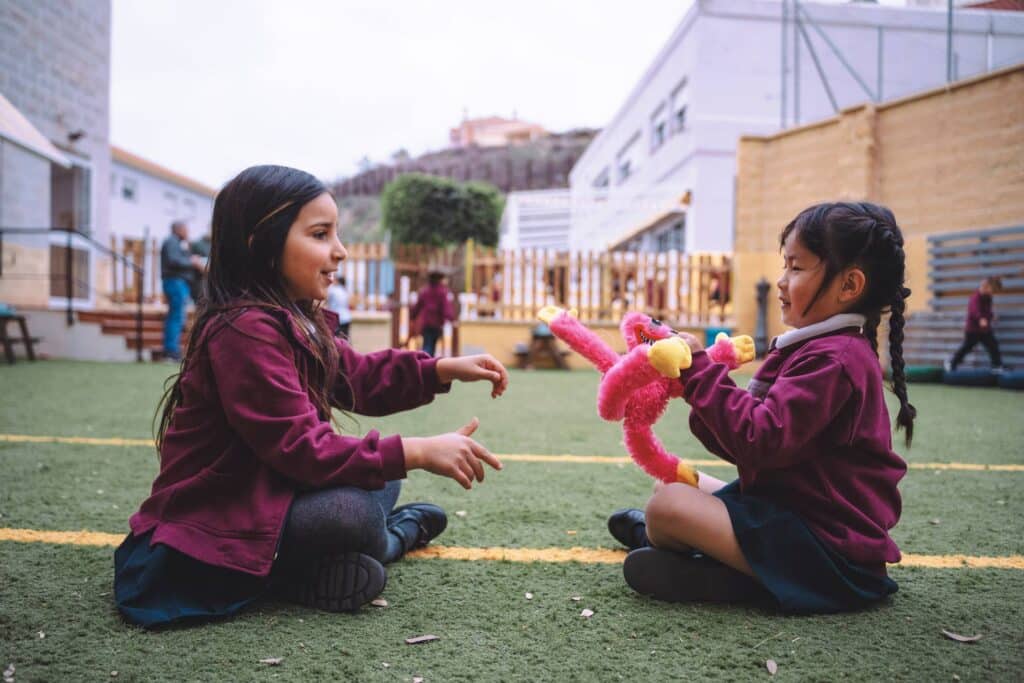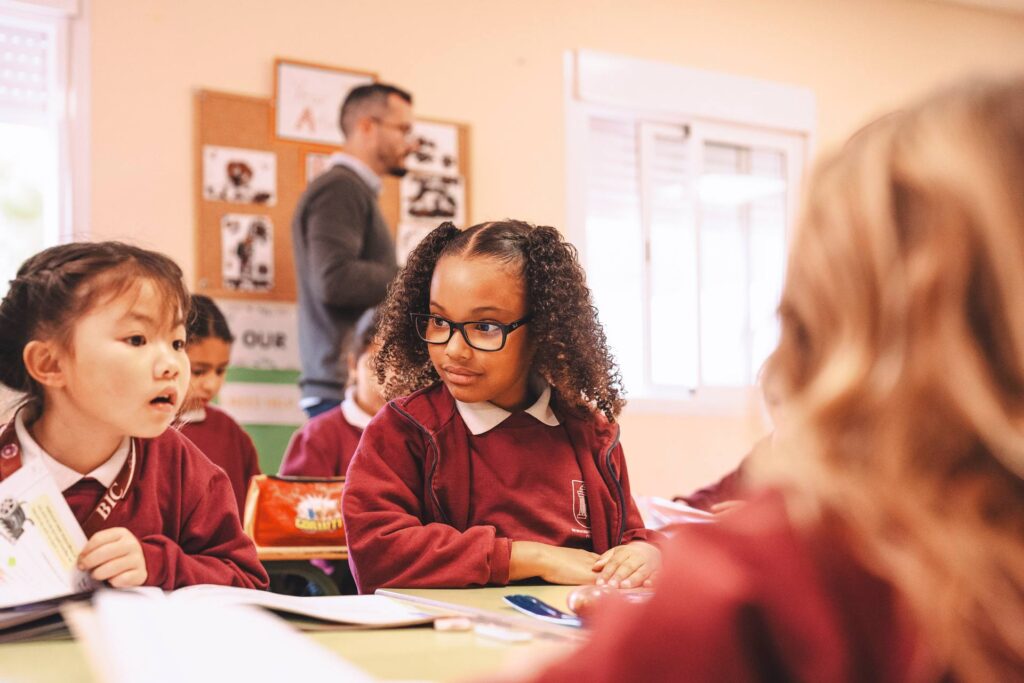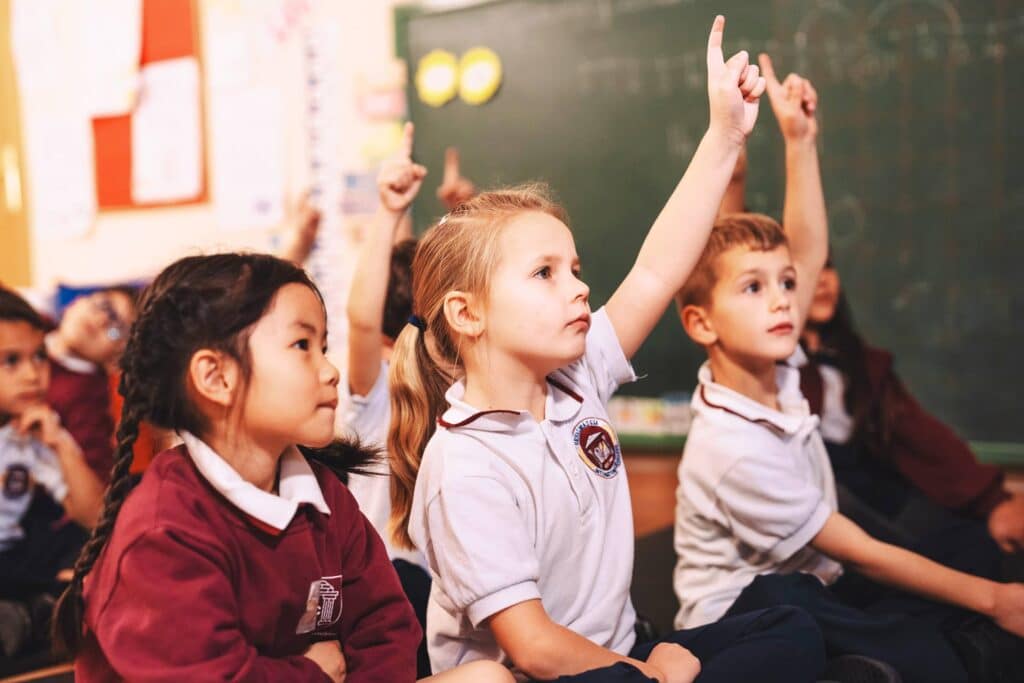Cultural Diversity Day, celebrated on 21 May, is an exceptional opportunity to reflect on the richness that different cultural expressions bring to our global society. In international educational environments such as The Benalmádena International College (The BIC), this celebration takes on a special significance, as cultural diversity forms an integral part of the educational experience offered by British schools in the province of Málaga. Throughout this article, we will explore the origins of this celebration, its relevance in the international educational arena and how educational institutions such as public schools in Benalmádena can incorporate activities that encourage respect and appreciation of cultural diversity among their pupils.
Origin and Meaning of the Cultural Diversity Day
The celebration of Cultural Diversity Day is rooted in an international commitment to recognise cultural plurality as a fundamental element for human development. It has evolved into a symbol of international cooperation and the incalculable value of dialogue between diverse cultures.
Declaration by UNESCO
In 2001, UNESCO adopted the Universal Declaration on Cultural Diversity, a landmark document that establishes the importance of protecting and promoting cultural diversity in an increasingly globalised world. This declaration underlines the fundamental role that culture plays in the lives of all human beings, affirming that cultural diversity constitutes a common heritage of humanity that must be recognised and consolidated for the benefit of present and future generations.
In educational contexts such as those offered by British private schools in Malaga, this recognition translates into pedagogical practices that celebrate multiculturalism and prepare students for an interconnected world.
Significance of the Declaration
The Declaration aims to raise awareness of the importance of cultural diversity, promoting cultural pluralism and the preservation of local identities in a global context. It recognises that cultural diversity is essential for fostering constructive dialogue between nations and communities , thus becoming a key instrument for world peace and stability.
In international educational environments such as The Benalmádena International College, these principles are embodied through a curriculum that integrates diverse cultural perspectives and fosters respect for differences, preparing students to be responsible global citizens.

Recognition by the United Nations
The official recognition of Cultural Diversity Day by the United Nations took place in 2002, consolidating this date in the international calendar. Since then, 21 May has been established as a moment to reflect on the value of cultural diversity and its impact on the promotion of sustainable development worldwide.
Private schools in Benalmádena with an international focus such as The BIC take advantage of this event to develop educational activities to raise awareness among their students about the importance of respecting cultural diversity.
Global Implications
The inclusion of this date in the calendar of international celebrations highlights the need for a collective commitment to cultural diversity. It seeks to raise awareness of the importance of adopting a positive attitude towards cultural differences, which will contribute to building more cohesive and just societies.
In the educational sphere of British schools in Malaga, this commitment is reflected in educational programmes that value diversity as an opportunity for mutual enrichment, preparing students to live in a world where intercultural understanding is an essential skill.
Events and Celebrations
Globally, there are a variety of activities that promote cultural understanding, highlighting gastronomy, art and dialogue. These cultural manifestations allow communities to share and celebrate their traditions, strengthening ties between different cultures.
In educational institutions such as The Benalmádena International College, these celebrations take on a formative character, being integrated into the educational curriculum and offering students meaningful learning experiences about global cultural diversity.
Importance of Intercultural Dialogue in International Education
Intercultural dialogue is a fundamental part of promoting peace and development in a diverse world. In educational contexts such as British private schools in Malaga, this dialogue becomes a pedagogical tool that enriches the educational experience and prepares students for the challenges of a globalised world.

Peace Building and Cooperation
Peaceful coexistence between different cultural groups is vital for social stability. Intercultural dialogue fosters peace by facilitating communication and mutual understanding. When people from different cultures connect, mistrust is reduced and collaborative relationships are promoted. This translates into:
- Eliminating stereotypes and prejudices that can lead to discrimination
- Building alliances and support networks among diverse communities
- Empowering conflict resolution through effective communication
In Benalmádena’s public schools with an international focus, these initiatives build bridges between communities and create an educational environment where diversity is valued as an enriching resource and not as an obstacle to learning and coexistence.
Current Challenges and Conflicts
Despite the benefits of intercultural dialogue, there are many challenges that threaten its development. In many regions of the world, cultural tensions can lead to violent conflict. Studies show that approximately three quarters of today’s conflicts have a cultural dimension. The most common causes of these disputes include:
- Lack of equitable representation of different cultural groups
- Perceived threats to cultural identity
- Competition for limited resources
In educational centres such as The Benalmádena International College, it is crucial to address these issues through intercultural dialogue, providing students with the necessary tools to become agents of positive change in their communities.
Strengthening the Sustainable Development Dialogue
Intercultural dialogue not only contributes to peace but is essential for sustainable development. The integration of diverse cultural perspectives in the design of public policies and development programmes enables global problems to be addressed more effectively. By collaborating and sharing knowledge, it is possible:
- Developing innovative solutions to challenges such as climate change
- Improving the social and economic inclusion of marginalised communities
- Foster a sense of belonging and social cohesion among different groups.
At British schools in Malaga such as The BIC, the recognition of cultural diversity as an integral part of sustainable development is essential to ensure that all voices are heard and valued in the quest for a better future for all.
The Role of Culture and Creativity in Educational Development
Culture and creativity play a fundamental role in human and social development. In international educational contexts such as Benalmádena’s public schools, these elements are seen as essential drivers of sustainable progress, generating opportunities for meaningful learning and fostering social cohesion in the educational community.

Economic Impact and Employment in the Cultural Sector
The cultural sector is a significant component of the global economy. Its impact is reflected in employment generation and Gross Domestic Product (GDP) growth in many countries. The sector contributes an estimated 6.1% to global GDP and generates approximately 4.3 trillion dollars annually, employing millions of people, especially young people between 15 and 29 years of age.
In British private education schools in Malaga, it is essential to educate students about these emerging career opportunities, preparing them for a job market where the creative and cultural industries are becoming increasingly important.
Culture as a Driver of Sustainable Development
Culture is recognised as a key driver for sustainable development. It includes aspects that go beyond economics, encompassing education, social welfare and environmental protection. Cultural diversity offers the opportunity to establish inclusive development models.
At schools such as The Benalmádena International College, investing in cultural activities not only enriches the educational experience of students, but also contributes to the promotion of values such as sustainability, social justice and respect for diverse cultural heritage.
Creativity and Human Rights
Creativity is intrinsically linked to human rights. It allows for free expression, respecting the diversity of voices and experiences in societies. Cultural rights are fundamental to ensuring that everyone has access to the benefits of culture and creativity.
In Benalmádena’s public schools with an international focus, promoting an environment in which cultural expressions are valued fosters equality and respect between different groups. Educational initiatives include:
- Actions to ensure equity of access to cultural opportunities for all students
- Promotion of artistic freedom and protection of the cultural expressions of the communities represented in the school.
- Creating platforms for cultural exchange between students from different backgrounds
Promoting the recognition of cultural rights is essential for educational development that is truly inclusive and integrates all voices into the social fabric of the school community.
Activities to Celebrate Cultural Diversity Day in Educational Centres
Cultural Diversity Day is an excellent opportunity for schools such as the British schools in Malaga to implement activities that promote respect and appreciation of the different cultures that coexist in their educational community.
Global and Local Events in Education
At public schools in Benalmádena such as The BIC, multiple events can be organised to commemorate this date. Educational spaces become vibrant stages, where cultural festivals are held, including music, dance and visual arts from a variety of traditions:
- Multicultural festivals highlighting music and dance from different regions represented in the school community
- Art exhibitions showcasing student artwork inspired by diverse cultural traditions
- Talks and discussions on the importance of cultural diversity in fostering peace and global cooperation
These activities allow The Benalmádena International College to position itself as an educational centre committed to the values of cultural diversity and international education.
Educational and School Initiatives
Educational institutions play a key role in celebrating Cultural Diversity Day. In British private education schools in Malaga, programmes and activities can be implemented that aim to educate students about the richness and diversity of the world’s cultures:
- Classroom activities that encourage the investigation of different cultures and traditions, integrating them into the British curriculum.
- Art projects in which students create works inspired by diverse cultures, fostering multicultural aesthetic appreciation.
- Essay competitions and exhibitions where students can express what they have learned about cultural diversity and its importance in a globalised world.

These educational initiatives allow centres such as The Benalmádena International College to offer an educational experience that goes beyond the academic curriculum, preparing students to be global citizens with an open and respectful mentality towards cultural diversity.
Exchange of Cultures through Gastronomy
Gastronomy is one of the most attractive ways of celebrating cultural diversity in education. Public schools in Benalmádena can organise gastronomic fairs where you can taste dishes from different parts of the world represented in their educational community:
- Culinary gatherings where students and families share recipes and dishes typical of their countries or regions of origin.
- Cooking demonstrations to learn about the culinary traditions of different cultures present in the school community.
- Interactive gastronomic activities, where students can participate in the preparation of typical dishes, learning about history and culture through food.
These gastronomic activities not only promote intercultural awareness, but also strengthen community ties between the families who form part of the educational community of centres such as The Benalmádena International College.
International Declarations and Policies: Their Impact on Education
Declarations and policies at the international level play a crucial role in promoting cultural diversity in education. These initiatives establish a legal and policy framework that strengthens the protection and promotion of diversity in international educational contexts such as British schools in Malaga.
The Universal Declaration on Cultural Diversity in the Educational Context
The Universal Declaration on Cultural Diversity adopted by UNESCO in 2001 is a fundamental document that recognises cultural diversity as a common heritage of humanity. For public schools in Benalmádena with an international focus, this text sets out guiding principles that can be incorporated into their educational projects.
The Declaration reaffirms that cultural diversity is a human right and promotes tolerance and respect between cultures. It also maintains that each individual has rights in respect of his or her own culture and that communities should have the ability to preserve and develop their cultural identities.
At schools such as The Benalmádena International College, these principles are translated into teaching practices that value diversity as an opportunity for mutual enrichment and meaningful learning.
MONDIACULT and Statements Relevant to International Education
In 2022, the MONDIACULT conference was held in Mexico City, representing the largest global gathering on culture in the last four decades. This event culminated in a Declaration for Culture, which emphasises culture as a global public good. The Declaration recognises the importance of integrating culture into development policies, including education policies.
For British private schools in Malaga, these statements provide a conceptual framework for integrating the cultural dimension as an essential component of a quality education that prepares students for the challenges of a globalised world.
Role of International Institutions in Multicultural Education
The United Nations has played a transformative role in promoting policies that uphold cultural diversity in education. Through programmes and resolutions, it has emphasised the need to foster intercultural dialogue and mutual understanding in education systems around the world.
In public schools in Benalmádena such as The BIC, these international guidelines are embodied in an educational project which:
- Promotes respect for cultural diversity as a fundamental value.
- Integrating diverse cultural perspectives into the UK curriculum
- It develops intercultural competences in students, preparing them to be global citizens.
In this way, educational centres such as The Benalmádena International College not only comply with international standards of educational quality, but also contribute to the construction of a fairer, more inclusive and respectful society with cultural diversity.

Future of Cultural Diversity in International Education
The future of cultural diversity in education is a crucial issue for institutions such as British schools in Malaga. The convergence of cultures in educational settings offers opportunities and challenges that need to be addressed with effective pedagogical strategies.
Innovation and Sustainability in Multicultural Education
The integration of cultural diversity within innovative educational practices is essential to ensure the sustainable development of the international educational model. At public schools in Benalmádena such as The BIC, investing in initiatives that promote creativity and cultural inclusion not only fosters the well-being of the educational community, but also prepares students for a professional future in a diverse world. Educational policies that focus on sustainability and cultural diversity can lead to:
- Development of innovative educational projects that integrate the cultural dimension as a transversal axis.
- Preservation and appreciation of diverse cultural traditions as part of the international curriculum
- Promoting inclusive educational practices that respect and celebrate cultural diversity
Commitment to innovation will enable schools like The Benalmádena International College to prepare their students to be agents of change in a culturally diverse and constantly evolving world.
Global Challenges and Collaborative Solutions from Education
The challenges facing the world today, such as socio-political conflicts and climate change, require a multidimensional educational approach that incorporates diverse cultural perspectives. In British private education schools in Malaga, fostering intercultural dialogue can contribute to building collaborative solutions that are effective. Within this context, the following stand out:
- Educational initiatives that promote intercultural education as a cross-cutting theme in the curriculum.
- International cooperation projects linking students from diverse cultures to address global issues
- International educational networks enabling the exchange of knowledge and good practices in multicultural education.
Collaboration between different international educational centres is key to addressing global challenges, highlighting the value that each culture brings to the generation of effective educational ideas and strategies.
Culture as a Tool for Educational Transformation
Culture has the potential to be a driver of educational transformation. In public schools in Benalmádena such as The BIC, through the promotion of cultural diversity, we contribute to building fairer and more inclusive educational communities. Cultural expression allows students to recognise and value their own identities, resulting in a greater sense of belonging and cohesion in the school community. Thus, some of the benefits observed include:
- Strengthening students’ individual and collective cultural identity
- Reducing tensions in the school environment through mutual respect and understanding
- Empowering students from diverse backgrounds through the valorisation of their cultural heritage
The interaction between different cultures at The Benalmádena International College not only enriches the educational experience, but also plays a decisive role in the formation of global citizens committed to peace, sustainability and respect for cultural diversity.
Bibliography
Videos


